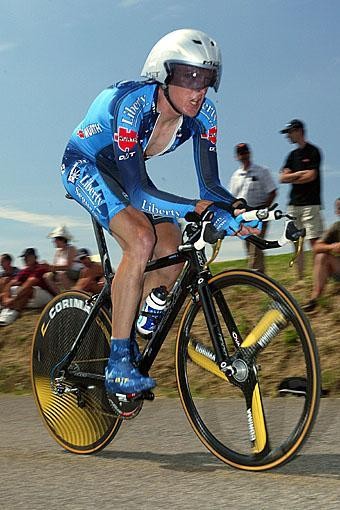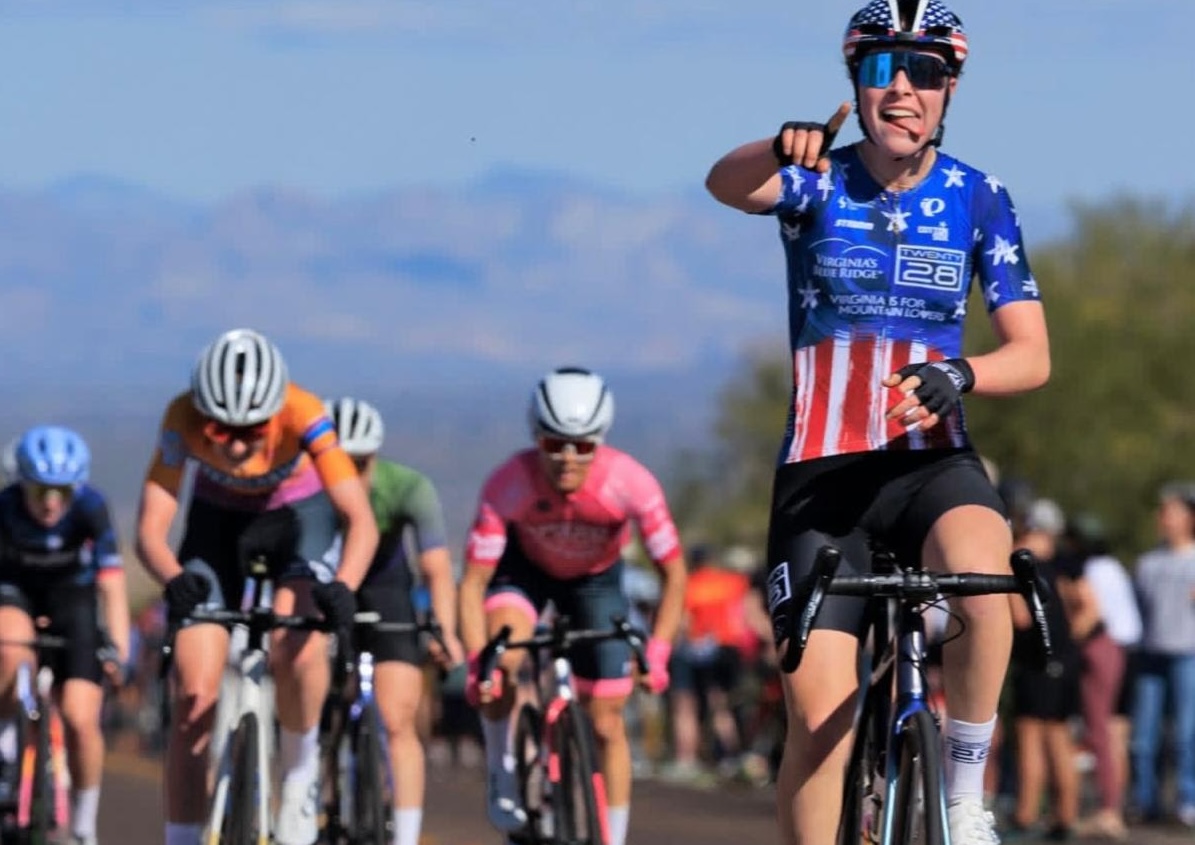Jaksche admits taking banned substances & blood doping
German rider Jörg Jaksche confessed Saturday to using banned substances and practicing blood doping...
The latest race content, interviews, features, reviews and expert buying guides, direct to your inbox!
You are now subscribed
Your newsletter sign-up was successful

German rider Jörg Jaksche confessed Saturday to using banned substances and practicing blood doping to enhance his performance in an exclusive interview with Der Spiegel. His lawyer had said Friday Jaksche would tell all on Monday.
Jaksche's doping program began in 1997 while competing for Team Polti at the Tour de Suisse. That's where he first tried EPO. He said Gianluigi Stanga introduced him to it and wanted to see to what substances Jaksche would respond. "That was my crash course. A team assistant injected me with EPO in my room," Jaksche said to Der Spiegel.
Stanga, now with Milram, called Jaksche's accusations "absurd" on German channel ZDF.
"Yes, I did dope, but I never overdid it," continued Jaksche to Der Spiegel. "I never took artificial hemoglobin or stuff like that, where you can get an allergic shock. And you calm yourself by saying that a guy who does bodybuilding takes 16,000 units of growth hormone a day, and I only took 800 units once in a while for regeneration. Then you think: Well, it's not that much after all."
The German has competed for Team Telekom (1999-2000); ONCE-Eroski (2001 - 2003); Team CSC (2004), Liberty Seguros (2005-2006), and Tinkoff (2007). In May, Jaksche was suspended from racing by Tinkoff, which he had joined just one month earlier.
Jaksche's good performances while on Polti landed him a contract with Team Telekom. He explained, "[Former Team Telekom manager Walter] Godefroot knew everything. It was a well-established system. Godefroot didn't want to prevent doping, but he wanted to prevent inept doping." Afraid of more drug raids after the 1998 Festina team's doping scandal, Jaksche said he took nothing before the 1999 Tour, in which he finished 80th. Without drugs, "You have to put in more effort, recovery is slower. I couldn't hang on and felt unnecessary. At the end, I was afraid of getting dropped at railroad bridges."
Not doping almost cost him his job at Telekom. "I didn't understand the system. I didn't send my girlfriend to France with the substances," said Jaksche to Spiegel.
The latest race content, interviews, features, reviews and expert buying guides, direct to your inbox!
But a few years later, he was one of 13 racers prohibited from starting the 2006 Tour de France due to an alleged connection with Operación Puerto. Spanish police had found bags of blood, illegal doping products, and names of cyclists in a raid of Eufemiano Fuentes' facilities in May of 2006.
Jaksche admitted to starting a program of blood doping under the guidance of Spanish doctor Fuentes beginning in 2005. The blood bags with the name "Bella" on them, found in Fuentes' lab, were indeed his.
"Fuentes was a master of disguise. None of his clients knew about the others. Not even in our team did we know if other teammates were involved or not," said the 2004 Paris - Nice winner to Der Spiegel.
Commenting on the pervasiveness of doping in cycling, he added, "It's perverse, but the doping system is just, because everyone dopes. Cycling without doping is only just when really no one is doping any longer." Jaksche revealed doping was often coordinated by team management or at the very least, permitted. "The logic is you adjust your performance level to the rest, because everyone is doing it. In cycling, you live in a parallel world.
"Cycling per se is not fun. It always hurts. The sport is a lot about pain, physical pain. Workouts are the attempt to increase your performance so you won't get dropped. And so it won't hurt so much first there was cortisone, then EPO and today it is fresh blood. Cycling is a difficult sport. A soccer player can run 90 minutes like a fool over the field, but if he scores the decisive goal in overtime he's the hero. In cycling, you get dropped in 99 out of 100 races, even when you give it everything. It hurts, all the time; but you still are successful only a few times."
Cynical about the future, he said, "Of course, no one held my arm for the injection, but team leaders, who got rich off you in the past, who supplied the things, they are now pretending to push for a clean sport... . Nobody liked doping; neither a Stanga nor a Riis... . I was told by one rider that there are deals between some teams and the UCI concerning the training controls. So one has to assume that there is no general change going on. This rider told me that proudly. Then I knew: Nothing has changed."
The UCI is now reviewing a 6,000 page dossier with additional information on Operación Puerto. According to the Associated Press, the first 1,000 pages are now under review with the remaining 5,000 to come in a few weeks.
Jaksche's revelations come soon after the German Cycling Federation announced Thursday it would prohibit the racer from contesting the German national championships.
Vinokourov gave one of the earliest reactions to Jaksche's revelations. "Jaksche was contacted by Der Spiegel and offered lots of money," he said to L'Equipe. "It's easy to give evidence when there is a big check in front of you. You always find a good story to justify the sum."
Cyclingnews' recent coverage of 'Operación Puerto'
April 2, 2009 - Valverde indignant over possible suspension
April 1, 2009 - Valverde: Italy requests two-year suspension
March 13, 2009 - Le Monde newspaper hit with fine over Puerto allegations
March 2, 2009 - WADA president Fahey asks for Puerto evidence
February 24, 2009 - Spanish federation seeks access to Puerto blood bags
February 20, 2009 - CONI considers Valverde case while UCI awaits verdict
February 19, 2009 - Valverde under criminal investigation
February 11, 2009 - Valverde summonsed for Operación Puerto in Italy
February 8, 2009 - Eight charged in Operación Puerto
